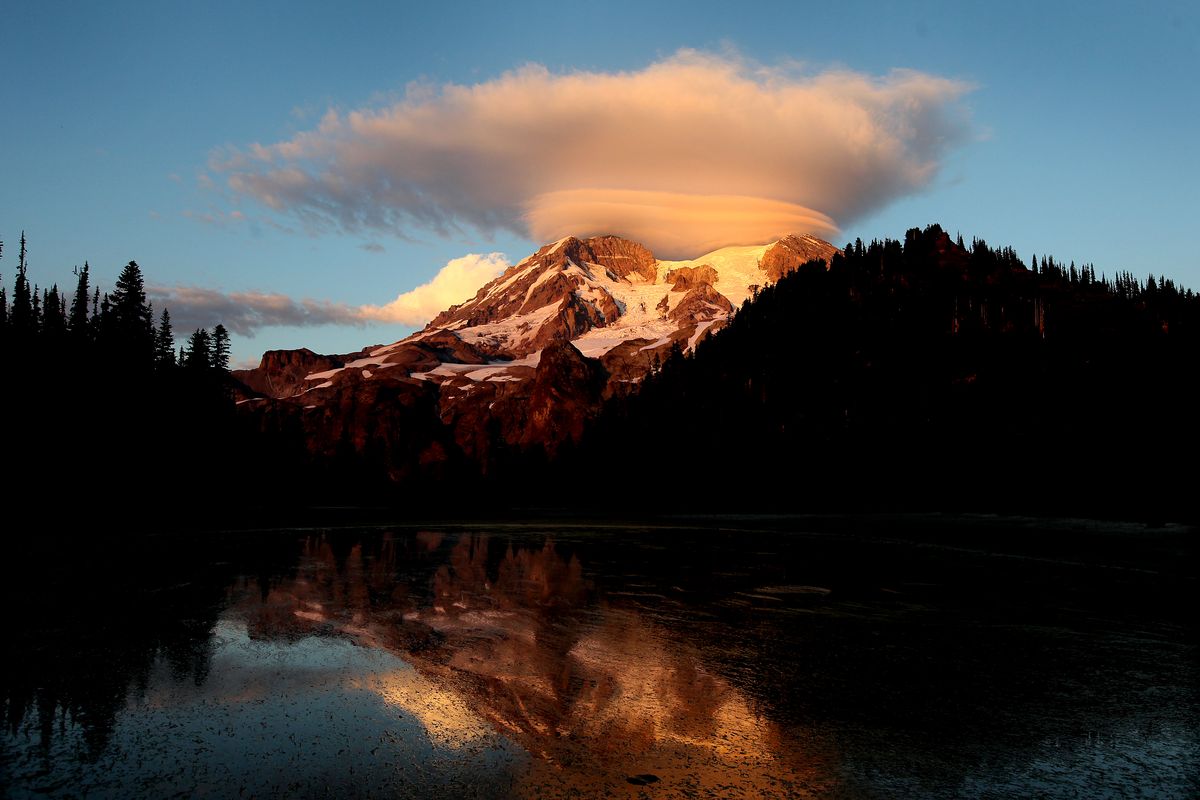Senate passes bipartisan conservation bill

WASHINGTON – In a rare show of bipartisanship, the Senate passed a landmark conservation package Wednesday with big implications for the nation’s public lands – and perhaps also for control of the Senate in November’s election.
The legislation secures money to chip away at a backlog of maintenance needs at national parks and guarantees full funding for the Land and Water Conservation Fund, which Congress created in 1964 to acquire and maintain public lands. More than half of the chamber’s GOP members joined Democrats to pass the bill after President Donald Trump backed it, giving a boost to two vulnerable Republicans who face reelection this fall.
It was a major priority for Sen. Maria Cantwell, D-Wash., who earlier this year introduced legislation to fully fund the LWCF that became part of the package.
“Public lands are a great driver of our economy and an essential aspect of American life, and this vote says we’re going to continue to invest in them,” Cantwell said, speaking on the Senate floor before the vote Wednesday. “It couldn’t be a more important investment, and it couldn’t give America a bigger return.”
Republicans were split on the issue, with Idaho Sens. Mike Crapo and Jim Risch among the 25 members of their party who voted no. In a statement, Crapo hailed the successes of the LWCF, which he voted last year to permanently authorize, but said he opposed mandating the funding each year.
“Each case should be weighed on its own merits,” Crapo said, and he voted no because it “removes Congress’ oversight ability to determine how much money goes to this program each year. Instead of focusing primarily on acquiring more lands, federal conservation dollars should go toward maintaining the lands the federal government already owns.”
Authorizing funding doesn’t mean Congress will actually appropriate money to be spent. The fund has been authorized to receive $900 million each year – with the money coming from offshore oil and gas drilling – but lawmakers have only fully funded it twice in the 55 years since Congress established it, choosing to direct money elsewhere.
A spokesperson for Risch echoed Crapo’s concerns, saying in a statement he didn’t want Congress to give up its oversight of how funds are allocated.
“Rather than spending billions of taxpayer dollars to acquire more lands, the federal government should instead focus on responsibly caring for the land it already possesses,” the statement said. “The Senator will continue to lend his support to Land Water Conservation Fund projects in Idaho where there is buy-in from local communities.”
The second part of the package would direct $1.9 billion per year for the next five years to chip away at a more than $20 billion backlog of maintenance projects at national parks, including more than $400 million in Washington state. Those funds also would not come from taxpayers, but from revenue generated by fossil fuel and renewable energy from public lands and waters.
Other Republican senators, however, were some of the bill’s most vocal backers. Sens. Cory Gardner of Colorado and Steve Daines of Montana, both of whom face tough reelection battles in November, championed the bill and secured Trump’s support earlier this year. The GOP holds a narrow majority with 53 of 100 seats in the Senate, and Gardner and Daines are expected to tout their success with this legislation in their campaigns.
Sen. Patty Murray, D-Wash., was unable to get to the vote, according to an aide who said she supported the bill. Both Murray and Cantwell were among 59 co-sponsors.
The legislation will now go to the Democratic-controlled House, where it has bipartisan support and looks likely to pass. Rep. Mike Simpson, R-Idaho, is a lead co-sponsor of the equivalent bill in the House.